Friends of Zion Hill Cemetery, with help from Trinity College students, did more beautification work at Frog Hollow’s Zion Hill Cemetery this weekend.
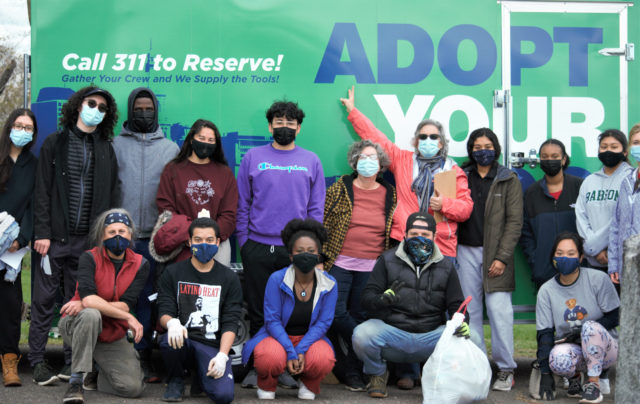
Volunteers picked up litter inside the cemetery and along the outside of its fence — which was where most of the debris gathered.
Folks who remove trash from public spaces know that all manner of treasures can be found, and unfortunately this year, single-use masks are not rare. The most common are items that have little worth — plastic bags, snack bags, and non-returnable beverage containers.
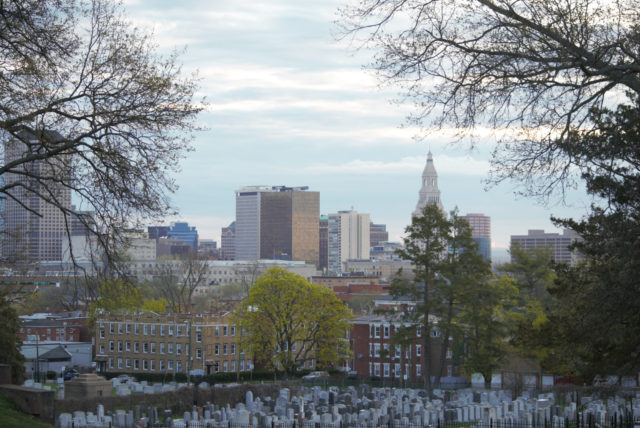
After there was a fee charged for plastic bags, they became less commonly seen; however, last year, Gov. Lamont paused this policy early in the pandemic, despite no scientific evidence indicating that disposable bags prevented virus transmission. Seriously, even in the early days, it was known that the virus was detected on plastic much longer than on porous materials like paper and cloth. But, politicians do not always make logical, science-based decisions. The result was immediate. Plastic bags began to litter our parks and green spaces once again, twisting around and around branches.
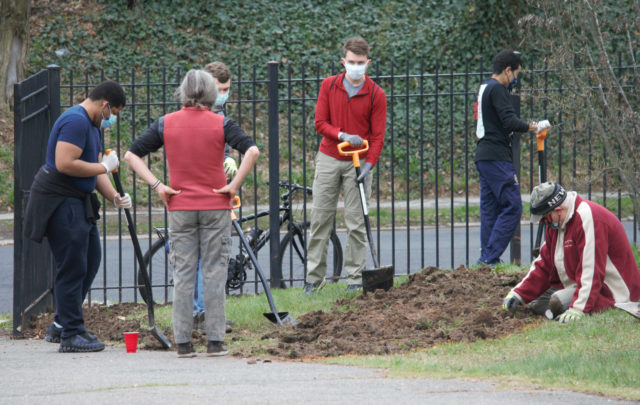
Connecticut could soon see a reduction in litter from beverage containers, but only if residents speak up and insist that legislators show political courage. Louis Rosado Burch, the Connecticut Program Director of the Citizens Campaign for the Environment, spoke to volunteers about S.B. 1037, an attempt to update our state’s container deposit law. Those who return bottles and cans now have not seen a raise in decades, so some of our state’s most economically disadvantaged people would benefit from this potential increase. More to the point, expanding which objects can be returned for money — nips, energy drinks, juices, kombucha, plant water, and more — would incentivize people to pick up empties that we see scattered all over the place. Maybe in some places 10¢ doesn’t mean anything, but in my neighborhood, there are plenty of people who aren’t going to leave money on the ground.
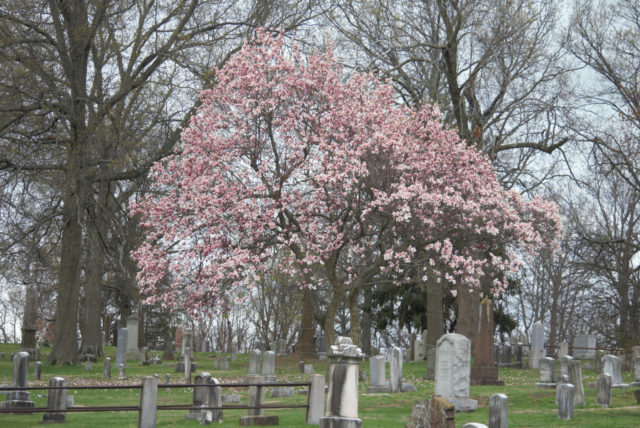
The bill would also expand the availability of bottle-and-can machines (reverse vending machines), so people would not necessarily have to schlep bags on buses, bikes, or carts to Stop & Shop. They would have shorter distances, in many cases, to make their returns. Chain drugstores and dollar stores would be among those to have machines on site. This bill is a win for the environment, for aesthetics, and for people who rely on bottle & can return for income.
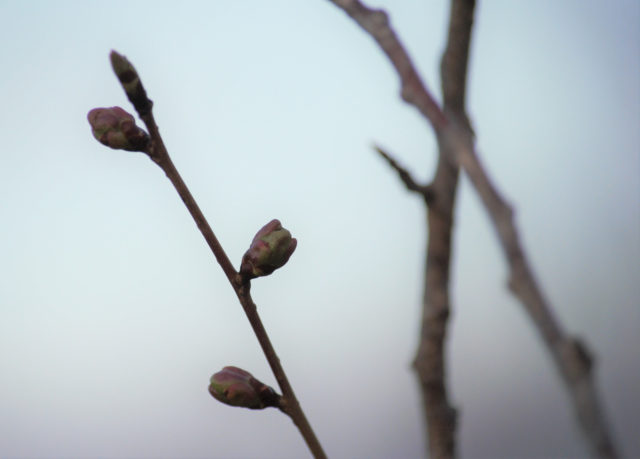
At this weekend’s event there were plenty of volunteers and not everyone was needed to manage litter. Some prepared flower beds. Others planted. Others moved wheelbarrows filled with mulch. If you’re looking for something social where you are also outside and easily able to stay physically distant from others, landscaping projects are where it’s at.
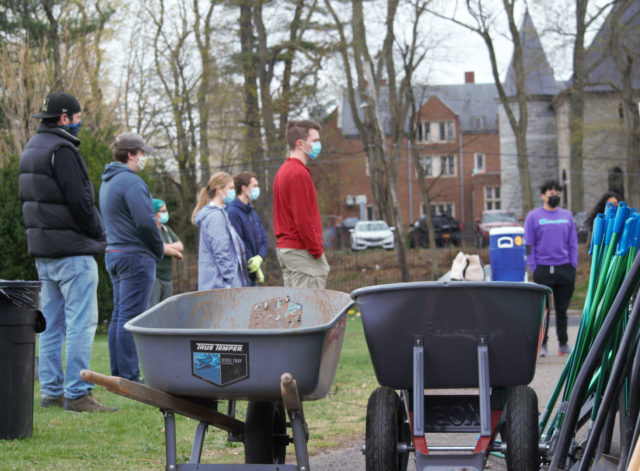
The group’s efforts over the last year are already visible, with daffodils blooming and buds forming on the new trees lining the cemetery’s main roadway. More trees will be planted; the Friends group is in the process of researching which species will be the best fit for the location.
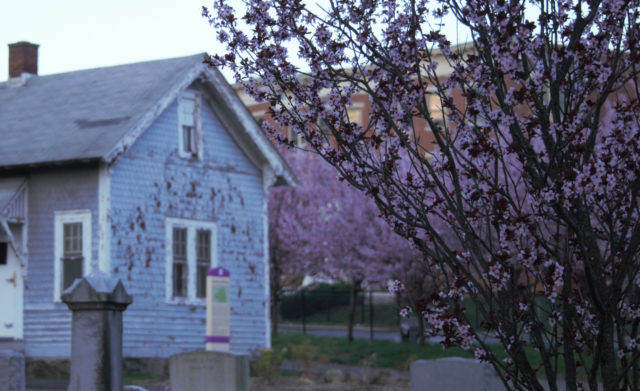
If you’re interested in getting involved with the Friends of Zion Hill Cemetery, contact Carey Shea.
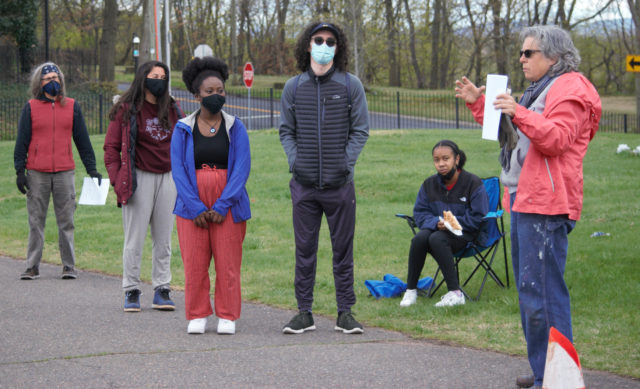
If you want to support to bottle bill, contact your legislators.
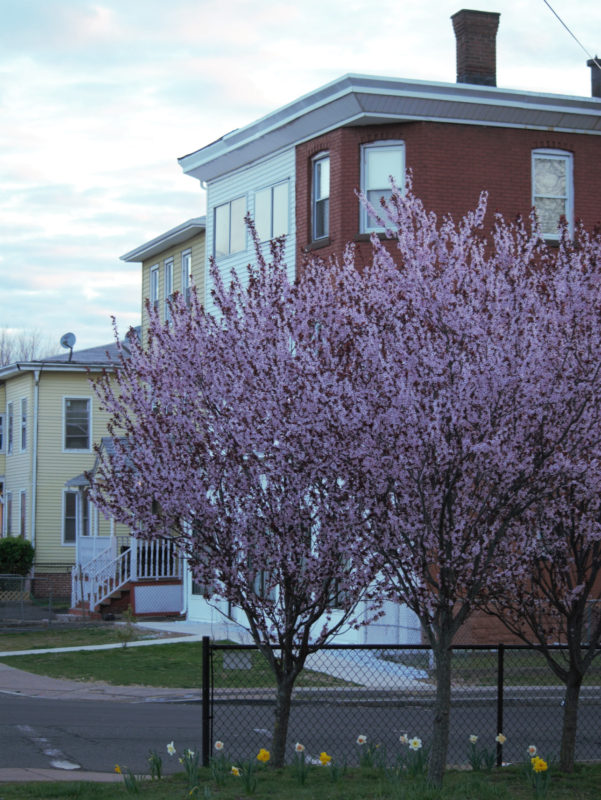
Building Community at Zion Hill Cemetery
Friends of Zion Hill Cemetery, with help from Trinity College students, did more beautification work at Frog Hollow’s Zion Hill Cemetery this weekend.
Volunteers picked up litter inside the cemetery and along the outside of its fence — which was where most of the debris gathered.
Folks who remove trash from public spaces know that all manner of treasures can be found, and unfortunately this year, single-use masks are not rare. The most common are items that have little worth — plastic bags, snack bags, and non-returnable beverage containers.
After there was a fee charged for plastic bags, they became less commonly seen; however, last year, Gov. Lamont paused this policy early in the pandemic, despite no scientific evidence indicating that disposable bags prevented virus transmission. Seriously, even in the early days, it was known that the virus was detected on plastic much longer than on porous materials like paper and cloth. But, politicians do not always make logical, science-based decisions. The result was immediate. Plastic bags began to litter our parks and green spaces once again, twisting around and around branches.
Connecticut could soon see a reduction in litter from beverage containers, but only if residents speak up and insist that legislators show political courage. Louis Rosado Burch, the Connecticut Program Director of the Citizens Campaign for the Environment, spoke to volunteers about S.B. 1037, an attempt to update our state’s container deposit law. Those who return bottles and cans now have not seen a raise in decades, so some of our state’s most economically disadvantaged people would benefit from this potential increase. More to the point, expanding which objects can be returned for money — nips, energy drinks, juices, kombucha, plant water, and more — would incentivize people to pick up empties that we see scattered all over the place. Maybe in some places 10¢ doesn’t mean anything, but in my neighborhood, there are plenty of people who aren’t going to leave money on the ground.
The bill would also expand the availability of bottle-and-can machines (reverse vending machines), so people would not necessarily have to schlep bags on buses, bikes, or carts to Stop & Shop. They would have shorter distances, in many cases, to make their returns. Chain drugstores and dollar stores would be among those to have machines on site. This bill is a win for the environment, for aesthetics, and for people who rely on bottle & can return for income.
At this weekend’s event there were plenty of volunteers and not everyone was needed to manage litter. Some prepared flower beds. Others planted. Others moved wheelbarrows filled with mulch. If you’re looking for something social where you are also outside and easily able to stay physically distant from others, landscaping projects are where it’s at.
The group’s efforts over the last year are already visible, with daffodils blooming and buds forming on the new trees lining the cemetery’s main roadway. More trees will be planted; the Friends group is in the process of researching which species will be the best fit for the location.
If you’re interested in getting involved with the Friends of Zion Hill Cemetery, contact Carey Shea.
If you want to support to bottle bill, contact your legislators.
Related Posts
Controversial Author Tim Wise to Speak at Trinity
Carousel Revealed
New Britain Avenue and Henry Street